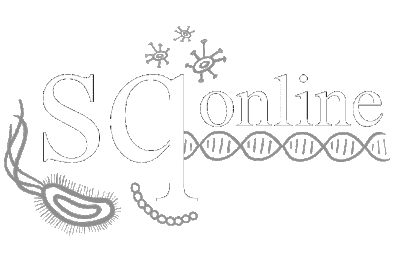By Oliver Engel | Blogger | SQ Online (2013-2014)
Biotechnology is quickly becoming one of the most prominent fields in science: biotech companies are getting bigger, their products more sophisticated, and demand for these advancements has increased.
But with the rapid expansion of biotech, we have reached a point where the public wants to know exactly what we’re doing in the thousands of labs across the world–how does it all affect them–and can it be trusted? This situation is very similar to what happened with the personal computer: at first, only professionals had any sort of use for them. The general public didn’t have a need for these complicated machines, as they were better handled by computer scientists. But as computers became more accessible and prominent, demand for the product increased, and today computers are found in hundreds of millions of homes across the world.
Biotech is no different, and one scientist, Ellen Jorgensen, realized that years ago. She established a community bio-lab, Genspace, in Brooklyn, where ordinary members of the community can come in and participate in molecular biology and bioengineering projects, unrestricted by many of the modern conventions of science. They don’t need to justify the profitability of their experiments, or even have an applicable reason for doing so. Jorgensen gives a compelling reason for the necessity of community bio-labs in the TED talk below.
—
Genspace describes their purpose as a “nonprofit organization dedicated to promoting education in molecular biology… [and] providing a safe, supportive environment for training and mentoring in biotechnology” (Genspace.org). The importance of such an organization cannot be understated: we absolutely need to involve the public with biotech. We currently face the dilemma of a stigmatized, yet expanding industry that has commanded the attention of the media, usually in a negative light. To dispel the common dystopian view of biotech, we need to meet the demands of the public, and get them to understand and participate in the science behind our revolutionary new advancements.
Fortunately, Genspace is not the only organization of its kind. Similar establishments can be found across the world, and are becoming more popular every day. These community bio-labs also hold classes that anyone can sign up for, teaching people how to conduct PCR, transfer bioluminescent genes into bacteria, analyze data with bioinformatics, and even use restriction enzymes to build plasmids. Some of the courses can be found on the Genspace website.
We even have our own DIY bio organization here in San Diego! With nearly 500 members and connections to many other bio orgs and investors, Biotech & Beyond is flourishing as the movement for involvement in biotech grows (and if you’re interested, they have an upcoming event dedicated to finding a noninvasive method for detecting methyl mercury in the human body!). Their website can be found here.
Popularizing DIY bio is the next step in developing biotechnology as an integral part of our society. If we make biotech as accessible as the personal computer, the possibilities are truly endless: research won’t be limited to what is profitable, new advancements will be less restrained by public opposition, and general interest in science will increase significantly!
Sources/Additional Reading
The Scientist article on the emergence of DIY bio organizations

